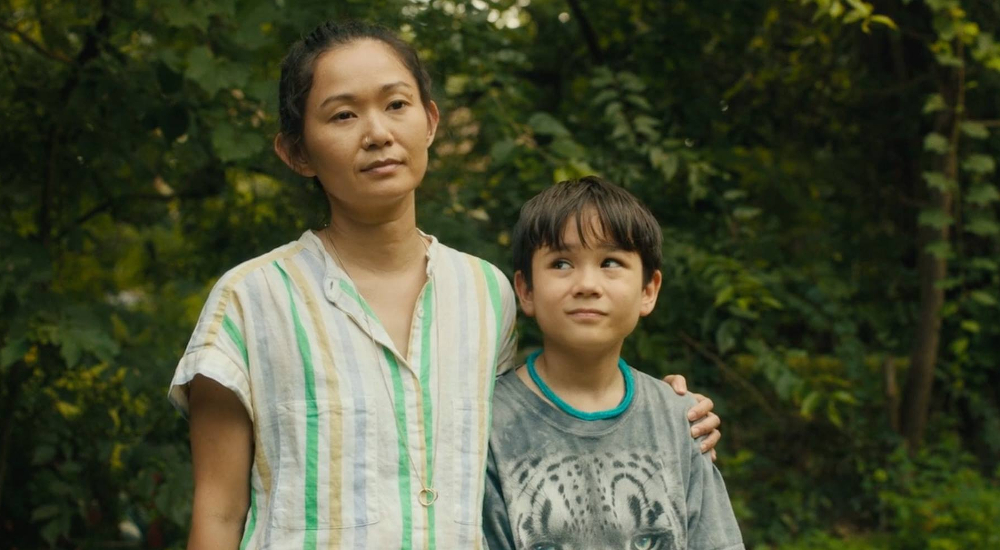“…and that’s the story.”
A film with overlapping narratives, beautifully intertwined to complete a stronger, more robust, yet ironically personal picture, Andrew Ahn’s Driveways is a film that, at first sight, is unusually simple and somewhat mute but becomes undeniably impactful as it plays on the human longing to connect.
The film opens on a road trip of sorts as Kathy and Cody, a mother-son duo played by Hong Chau and Lucas Jaye respectively, venture away from the comfort of their home to an unfamiliar New York town. They’re there to clean out the house left behind by Cody’s recently deceased aunt, but what awaits them inside the front door is anything except what they expected.
It becomes quite clear early on that Cody struggles to fit in with kids his age. He has no problem spending the summer with his mom and takes more comfort in his tablet than he does the humans that surround him. But as Kathy works to figure out how to begin cleaning her hoarding sister’s home, Cody strikes up an unusual friendship with the next door neighbor, Korean War vet and retiree Del (Brian Dennehy).
Though Ahn struggles to find the right tempo for much fo the film’s first act, the growing relationship between Cody and Del help to provide a distraction. While Kathy works to get the electricity turned on and dispose of a dead cat, the two build the foundation for a genuine rapport, one build by choice, not necessity.
That isn’t to say that the friendship isn’t without hiccups - credit both Jaye and Dennehy. The two actors share undeniable chemistry; one that allows much to be told without any traditional dialogue. The film’s quietness will likely frustrate some, but for others, they won’t notice it until Cody himself mentions the noise during his ninth birthday party at the local skating ring - a party attended only by his mother and elderly friend.
But in a nutshell, that is what makes Driveways so unique. Without much happening, a tremendous amount of stuff does happen - the majority just happens to occur within the mind, soul, and personality of our true protagonist - young Cody.
When we hit the third act, and the story itself begins to wrap up, you can’t help but feel a bit sad. Granted the events on screen will pull at your heartstrings as Ahn beautifully illustrated the hardships that come with being grown-up and the hard transitions that often result in the aging process - but more so, you realize that while the formed friendship seems simple, the importance that both of these men are to one another is immense.
Those that haven’t been able to grasp Ahn’s intent with Driveways are given a quick cheat sheet during the film’s final scene. Del’s heartwarming monologue to Cody told on his porch - the very place they first met - will give you all the feels. Thankfully the same kind that the characters themselves are feeling, it will likely just take them some time to realize it fully.

